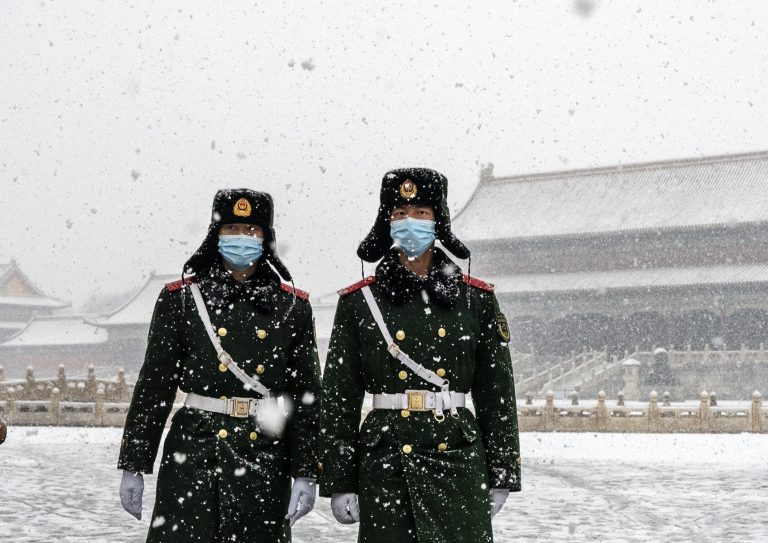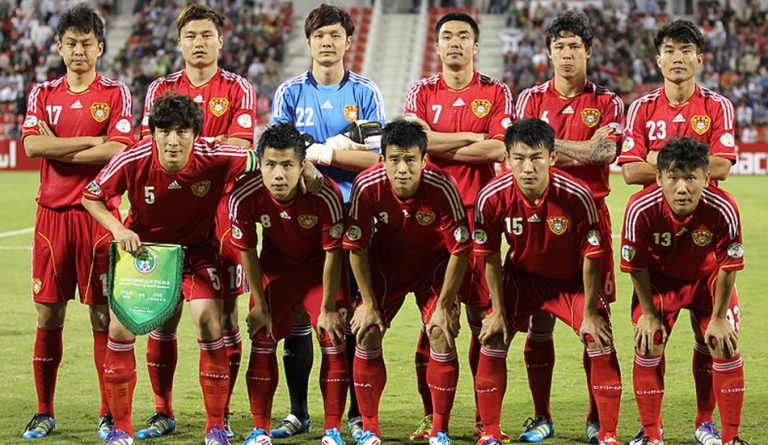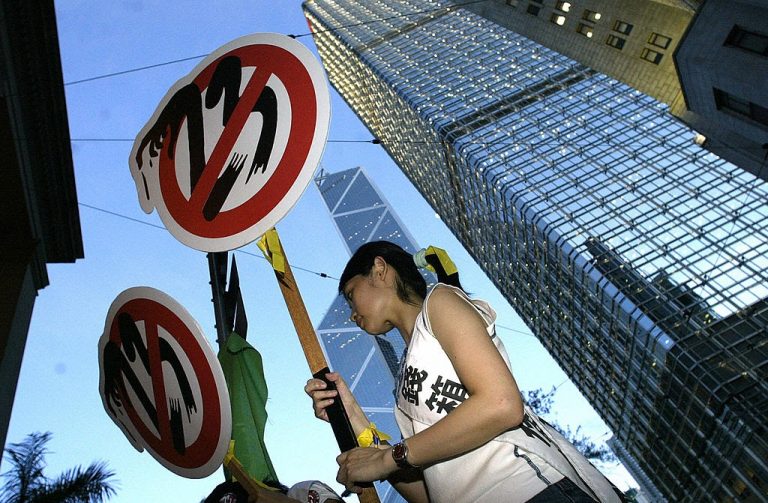News analysis
At a glance, the March 18 video call between U.S. President Joe Biden and Chinese leader Xi Jinping on Ukraine and other matters was a non-event. Official meeting readouts showed that both sides stuck to their respective talking points made before the call.
According to a terse 165-word White House readout, Biden warned Xi of “implications and consequences” if the People’s Republic of China (PRC) provided material support to Russia in its “unprovoked invasion of Ukraine.” Meanwhile, the 1,600-character PRC readout had Xi bring up the Sino-U.S. relationship with Biden and obliquely blame the U.S. for the Ukraine crisis. Xi said that the Ukraine situation had developed to a point “which China does not want to see” and pledged humanitarian aid to Ukraine, but did not denounce Russia for its “special operation” in the country.
A closer look at the PRC readout and post-meeting reactions, as well as ominous messaging from the U.S. and its allies regarding Xi’s stance on Russia, suggest that there is more than meets the eye to the latest Biden-Xi call.
‘Stable China-U.S. relations’
The Xi leadership seems to suspect Washington of using the Russia-Ukraine war as a pretext to escalate tensions with China in a bid to bring the PRC in lockstep with broader Western interests. Noticeably, the PRC readout of the Biden-Xi call is heavily focused on the Sino-U.S. relationship and regime security despite the meeting being ostensibly about Ukraine.
READ MORE:
- 3 Key Takeaways From China’s ‘Two Sessions’ Meetings This Year
- In Leaked Recording, Elite Chinese Scholar Laments Crippling Dysfunction of Communist Regime
Success
You are now signed up for our newsletter
Success
Check your email to complete sign up
The readout noted early on that Biden had repeated to Xi that “the U.S. does not seek to fight a ‘new cold war’ with China, does not seek to change China’s system, does not seek to oppose China through strengthening its alliances, does not support ‘Taiwan independence,’ and has no intention of clashing with China.” Xi then told Biden that both countries must “lead the development of China-U.S. relations on the right track.”
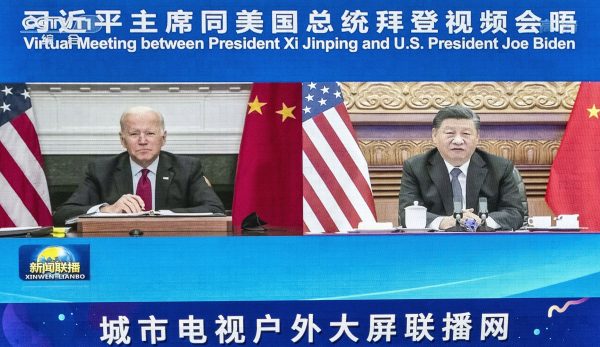
Xi also warned Biden that “some people in the U.S.” had made the “very dangerous” move of sending “wrong signals” about “Taiwan independence.” He added that the present Sino-U.S. situation is “directly due” to “some people in the U.S.” failing to implement the consensus reached between Biden and himself at their last meeting in November 2021. Further, Xi said that the U.S. and China need to manage their differences because “a stable and developing China-U.S. relationship is beneficial to both sides.”
The “long-term solution” to the Ukraine crisis that Xi proposed to Biden had one eye on the Sino-U.S. relationship. “Mutual respect among major powers, abandonment of Cold War mentality, not engaging in confrontational camps, and gradually building a balanced, effective, and sustainable global and regional security architecture” is the way to go, Xi said according to the readout.
Party mouthpiece Global Times made sure that Xi’s point came across crystal clear in an op-ed about the Biden-Xi call that was published a few short hours after its conclusion titled “Implement the Consensus of the Heads of State, Hope the U.S. Will Do What It Says.”
‘Either with us or against us’
Beijing is right to be concerned, given the attitude of the U.S. and its allies towards the PRC and Xi Jinping since Russia invaded Ukraine on Feb. 24. Western politicians, pundits, and media outlets have repeatedly called on China to denounce Vladimir Putin and Russia, adhere to international sanctions against Russia, and not support Russia materially.
READ MORE:
- Chinese Premier Li Keqiang to Step Down Amid Xi’s Struggle for a Third Term This Fall
- As Challenges Mount, China’s Xi Calls for ‘Self-Revolution’
Western pressures ramped up around the Biden-Xi call period. Secretary of State Antony Blinken warned on March 17 that Washington “will not hesitate to impose costs” on China for “actions it takes to support Russia’s aggression.”
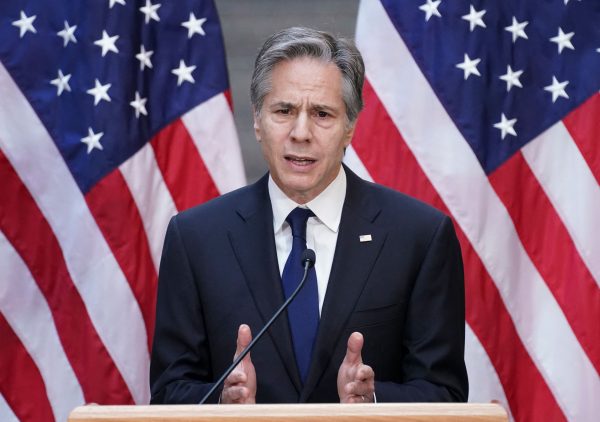
Center for Strategic and International Studies (CSIS) China scholar Scott Kennedy told Reuters that “China is either going to side with Russia and reinforce the sense that it has joined an ‘axis of autocracy,’ or it is going to put significant space between Moscow and Beijing and demonstrate that it genuinely cares about preserving even a basic relationship with the rest of the world.”
Kennedy added that if Beijing turns down the opportunity to make clear its allegiance, “it’s not clear to me there will be a next time to meet and set aside differences” after the Biden-Xi call. And on March 19, UK prime minister Boris Johnson said that Beijing should “get off the fence” on Russia in the “battle between good and evil” lest China end up on the “wrong side of history.”
The Western powers’ “either with us or against us” rhetoric and stance drew swift rebuke from the PRC.
On March 20, Chinese foreign minister Wang Yi declared that China stands on the “right side of history” regarding Ukraine. Meanwhile, vice foreign minister Le Yucheng described sanctions against Russia as “getting more and more outrageous.” Le added, “The consequences of forcing a major power, especially a nuclear power, into a corner are even more unimaginable,” a statement that would apply to both Russia and the PRC.
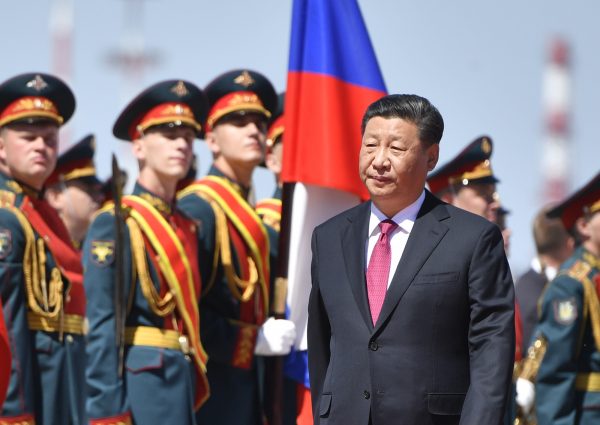
Beijing would also be troubled at none-too-subtle calls in the West to hold Xi Jinping personally accountable for Russia’s invasion of Ukraine.
In a March 11 article for Project Syndicate, prominent financier George Soros claimed that Xi “appeared to have given Putin carte blanche to invade and wage war against Ukraine.” He concluded that “we can only hope that Putin and Xi will be removed from power before they can destroy our civilization.”
Jude Blanchette, the Freeman Chair in China Studies at CSIS, listed Xi’s foreign policy missteps, including his “ill-advised support for Moscow on the eve of Russia’s disastrous military campaign,” in a March 16 article in Foreign Affairs magazine. Blanchette added that “these mounting failures highlight an increasingly evident trend: the more powerful Xi becomes and the more direct authority he exerts over Beijing’s foreign policy, the more adverse the outcomes are for China’s long-term strategic interests … What is taking shape is less China’s foreign policy than Xi’s.”
And in a March 18 Washington Post op-ed, Republican Senator Marco Rubio wrote that “Beijing has enabled Russian President Vladimir Putin’s war of aggression.” He added that the U.S. “must ensure that Xi and the CCP pay a price” for “no limits” Sino-U.S. partnership.
‘Irreparable losses’
The Xi leadership does not welcome the prospect of China being sanctioned over Russia. The PRC readout of the Biden-Xi call already hints that the PRC is “experiencing difficulties” from the COVID-19 pandemic, the Russia-Ukraine war, and “comprehensive, indiscriminate sanctions” levied against Russia. The readout also warns that escalating sanctions would trigger “serious crises in the global economy, trade, finance, energy, food, industrial chain, and supply chain,” and cause “irreparable losses.”
On a personal level, Xi Jinping is no doubt aware that U.S. and international sanctions against China over his stance on Russia would endanger his political security and ruin his push for another term in office at the 20th Party Congress scheduled for late this year. With the exception of his anti-corruption campaign, Xi’s political achievements have been evaporating alongside the rapid deterioration of the Chinese economy, a trend that erodes his shaky “quan wei” (authority and prestige) and threatens to torpedo his third term bid.
READ MORE:
- Does the CCP’s New ‘Historical Resolution’ Give Xi More Power? Not Really.
- Xi Warns About Food Security at ‘Two Sessions’ Meetings: ‘China can’t be complacent’
Meanwhile, Party elites are panicking over Western sanctions against Russian oligarchs, causing the usually fractious princeling clans to unite against Xi, according to Australian-based Chinese dissident Yuan Hongbing in a March 15 interview with the Chinese-language edition of The Epoch Times. On top of that, recent Western efforts to blame Xi for the Russian invasion suggest that an external “anti-Xi, not anti-CCP” strategy is being implemented, completing the political “encirclement” of Xi Jinping.
Xi, however, has no choice but to stick to his guns on Russia in the face of mounting opposition. To abandon Putin and Russia now would be to publicly acknowledge his foreign policy failures, proving his detractors right and massively undermining his own position.
Beijing’s unwavering stance on Russia after the Biden-Xi call indicates that Xi is prepared to risk U.S. “implications and consequences” over political calculations, foreshadowing more fraught Sino-U.S. relations and rising geopolitical tensions going forward.
Larry Ong is a senior analyst with New York-based political risk consultancy SinoInsider. He was part of the SinoInsider team that forecasted the 19th Party Congress and 2018 Two Sessions personnel reshuffles with a high degree of accuracy.



